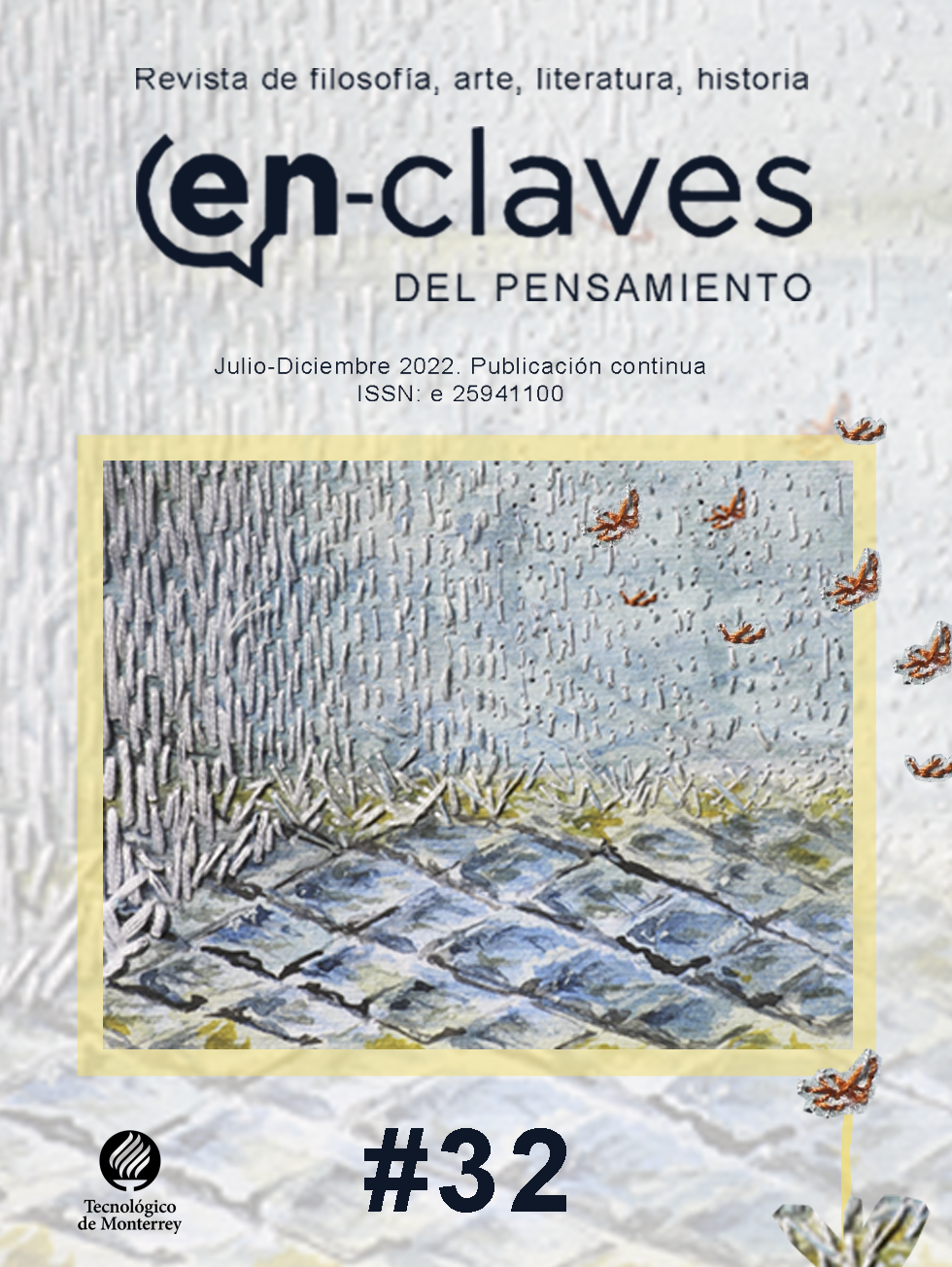Prudence and Political Deliberation: An Aristotelian Reformulation of the Precautionary Principle
Main Article Content
This paper develops an Aristotelian interpretation of the Precautionary Principle to show that assessment and management of scientific-technological risk should be closely linked to processes of political deliberation involving non-expert communities. This recovery of the political sense of phrónesis and its translation to the field of regulation avoids the temptation to seek authoritarian or technocratic ways of resolving environmental risk problems. Moreover, it allows us to respond to two criticisms recurrently launched against the Precautionary Principle: 1) that which warns of the disregard of the negative consequences derived from its application and 2) that which claims that it is based on biases that distort judgment and lead to bad decisions. In the face of these objections, a political-prudential conception of precaution will show that an inclusive deliberative process is the best strategy for detecting undesirable effects and, therefore, for improving our decisions.
Aristóteles. Política. Versión de Antonio Gómez Robledo. Ciudad de México: UNAM, 2000.
Aristóteles. Ética. Versión de Julio Pallí Bonet. Madrid: Gredos, 1998.
Aristóteles. Física. Versión de Guillermo R. de Chandía. Madrid: Gredos, 1995.
Aubenque, Pierre. La prudencia en Aristóteles. Barcelona: Crítica, 1999.
Bates, Clifford Angell. Aristotle´s Best Regime: Kingship, Democracy and the Rule of Law. Louisiana State University Press, 2003.
Bluhm, William, T. “The Place of the Polity in Aristotle Theory of the Ideal State”. The Journal of Politics, 24, núm. 4 (1962): 743-753.
Broncano, Fernando. Mundos artificiales: filosofía del cambio tecnológico. México: Paidós, 2000.
Brown, Phil. “Popular Epidemiology: Community Response to Toxic Waste-Induced Disease in Woburn, Massachusetts”. Science, Technology and Human Values, 12, núm. 3/4 (1987): 78-85.
Callon, Michel, Pierre Lascoumes y Yannick Barthe. Acting in a Uncertain World: An Essay on Technical Democracy. Cambridge: MIT Pess, 2001.
Castoriadis, Cornelius. “La democracia como procedimiento y como regimen”. Revista de ciencias sociales y humanidades, 83 (2001): 609.
Cirillo, Piera, Michele A. La Merrill, Nickilou Y. Krigbaum y Barbara A. Cohn. “Grandmaternal Perinatal Serum DDT in Relation to Granddaughter Early Menarche and Adult Obesity: Three Generations in the Child Health and Development Studies Cohort”. American Association for Cancer Research, 30, núm. 8 (2021): 1480-1488.
Comunidad Europea. “Protocolo de Cartagena sobre seguridad de la biotecnología del convenio sobre la diversidad biológica”. Diario Oficial núm. L 201 de 31/07/2002, 50-65.
Cosbey, Aaron. A Forced Evolution? The Codex Alimentaruus Commision, Scientific Uncertainty and the Precautionary Principle. Winnipeg: ISSD, 2000.
Crichton, Michael. Estado de miedo. Madrid: Plaza y Janés, 2005.
Funtowizc, Silvio, y Jerome Ravetz. La ciencia posnormal. Barcelona: Icaria, 2000.
Haberman, Clyde. “Rachel Carson, DDT and the Fight Against Malaria”. The New York Times, 22 de junio de 2017.
Harremoes, Paul, David Gee, Malcolm MacGarvin, Andy Stirling, Jane Keys, Brian Wynne y Sofia Guedes (eds.). The Precautionary Principle in the 20th Century. London: Earthscan, 2002.
Irwin, Alan. Citizen Science: A Study of People, Expertise and Sustainable Development. London: Routledge, 1995.
Johnson, Curtis. Aristotle’s Theory of the State. New York: St. Martin Press, 1990.
Lem, Stanislaw. Ciberíada. Madrid: Alianza, 2015.
Linkola, Pentti. Can Life Prevail? Wewelsburg: Wewelsburg Archives, 2009.
Luhmann, Niklas. Sociología del riesgo. Trads. Silvia Pappe, Brunhilde Erker y Luis Felipe Segura. México: Universidad Iberoamericana, 2006.
Manin, Bernard. Los principios del gobierno representativo. Madrid: Alianza, 1998.
Marcos, Alfredo. Ciencia y acción. México: Fondo de Cultura Económica, 2010.
Moscovici, Sergei, Willem Doise y Renaud Dulong. “Studies in Group Decision: II. Differences of Positions, Differences of Opinion and Group Polarization”. European Journal of Social Psychology, 2, núm, 4: 385-399.
Murphy, Priscilla. “Affiliation Bias and Expert Disagreement in Framing the Nicotine Addiction Debate”. Science, Technology and Human Values, 26 (2001): 278-299.
Neil, Nancy, Torbjörn Malmfors y Paul Slovic. “Intuitive toxicology: Experts and Lay Judgments of Chemicals Risks”. Toxicologic Pathology, 22, núm. 2 (1994): 198-201.
O’Riordan, Timothy, y James Cameron (eds.). Interpreting the Precautionary Principle. London: Earthscan Publications, 1994.
Puche, Paco. “El amianto: de la acumulación primitiva al capitalismo verde”. Boletín ECOS (17 dic. 2011-feb. 2012).
Shearman, David, y Joseph Wayne Smith. The Climate Change Challenge and the Failure of Democracy. London: Praeger, 2007.
Stoner, James. A Comparison of Individual and Group Decisions involving risk. Tesis de maestría, Massachusetts Institute of Technology, 1961.
Strauss, Leo. The City and Man. Chicago: Chicago University Press, 1978.
Sunstein, Cass. Leyes del miedo: Más allá del Principio de Precaución. Buenos Aires: Katz, 2009.
Sunstein, Cass. Riesgo y razón: seguridad, ley y ambiente. Buenos Aires: Katz, 2006.
Tucídides. Historia de la guerra del Peloponeso. Versión de Diego Gracián. Barcelona: Orbis, 1986.
Article Details

This work is licensed under a Creative Commons Attribution-NonCommercial 4.0 International License.













